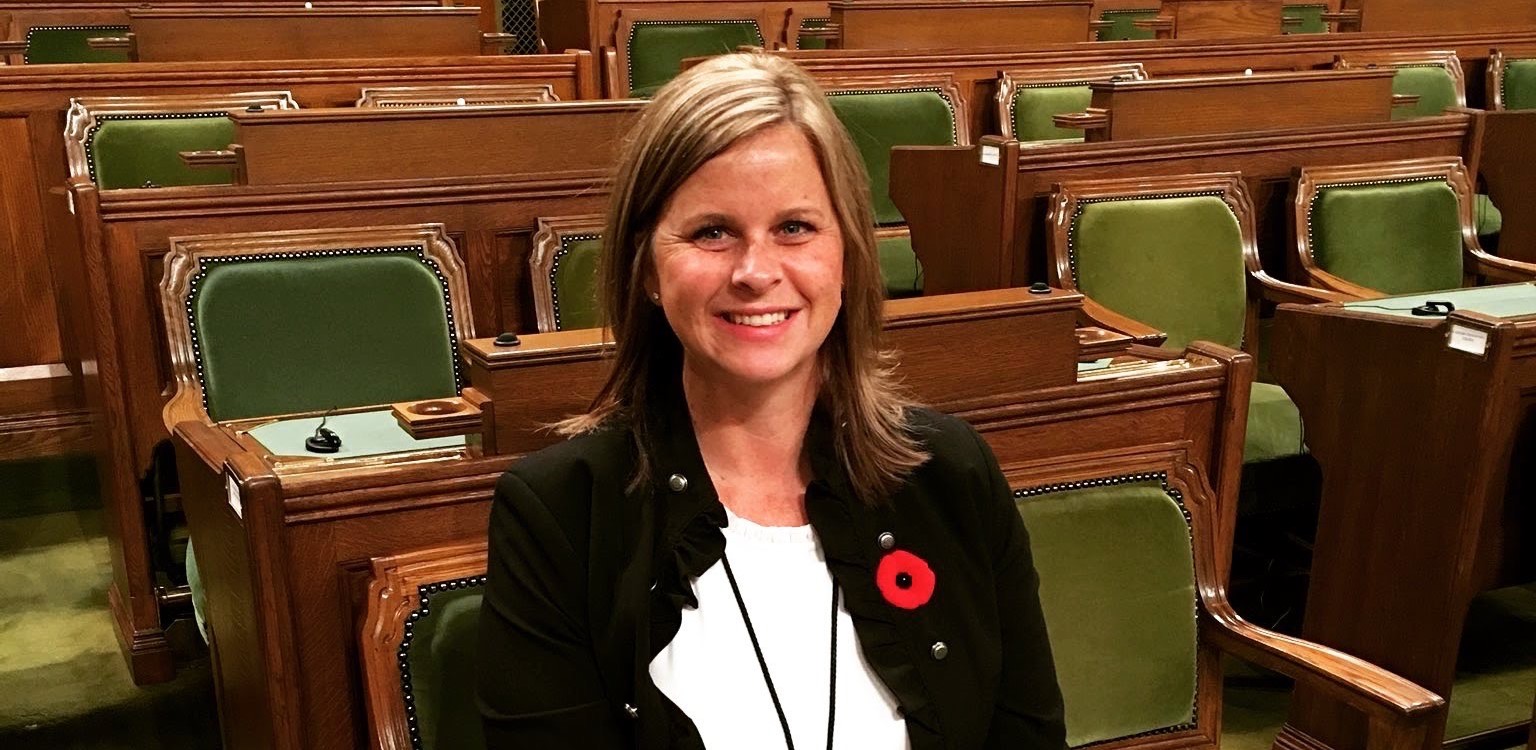Social Studies teacher Jennifer Keay always votes in person, on election day, at the polling place across the street from school.
When she left to do so for the 2015 federal election, she was surprised to find five former students waiting for her in front of the school — Hilltop High in Whitecourt, Alberta (pop: 12,000) — wanting to join her to vote.
“It was the most unexpected five,” Keay recalls. “They said, ‘We’re ready to go vote. Will you come with us?’ and I was like ‘You know how to do this. We practiced,’ and they said, ‘We know, but we want to do it with you.’ My heart just exploded.”
Keay, who teaches grades 9 to 12, is being recognized as a CIVIX Ambassador because she continually inspires her students, enlists her whole school in programs, advocates for the importance of civic education in her district, engages the broader community, and regularly supports CIVIX as a spokesperson and advisor.
Today, the Hilltop High voting caravan is a tradition. Every election day Keay and her students — both graduates and Grade 12s voting for the first time — gather after school to cast their ballots together.
We don't have to like everybody's opinions, but we certainly have to respect the human that it's coming from.
Keay’s enthusiasm is infectious. It’s perhaps not surprising that a woman who runs her classroom as “Keay Nation” would inspire this kind of loyal camaraderie around democracy.
And Keay Nation is the real deal. It has guiding principles (inclusivity, respect, listening), occasional currency (Monopoly money, Timbits), and everyday democratic practices (think: voting for when tests should happen). Its core mission is to protect democracy and prevent apathy.
After 20 years of teaching, it is the threat of political polarization that concerns Keay most now. She prioritizes teaching students to listen to others and express their opinions in constructive ways. “We don’t have to like everybody’s opinions,” she says, “but we certainly have to respect the human that it’s coming from.”
Keay has used CIVIX programs since the first federal Student Vote in 2004, which she describes as a “game changer.”
“I wouldn’t have survived without CIVIX,” she says of her first years teaching. “I had no idea what I was doing. In university they show you the curriculum, but I’ve got real human beings in front of me. How am I going to engage them in something as daunting as an election? And make it fun and engaging and worthwhile?”
Keay hasn’t missed an election since that first one, and Student Vote became the basis for her approach to teaching democracy. Over the years she has shared this passion with her school, building a whole-school commitment to Student Vote, citizenship education, and the principles of Keay Nation.
At election time, everyone at Hilltop High participates in Student Vote, and not just by casting a ballot.
Keay, for example, has worked with the math teacher on a cross-curricular election statistics project, encouraged English teachers to use election-related sources for media analysis assignments, and supported the art class in making election posters.
Student Vote is also undertaken with the whole community in mind. Students hold sessions in the gym to help register voters who are elderly, new to Whitecourt, or new to the country. They also produce informational pamphlets about voting that go home to families.
And, of course, the election itself is as faithful as possible, and a huge day at Hilltop High.
“It’s a whole school endeavor to get everything done, and everybody gets on board,” Keay says. “It’s really, really awesome to see.”
Student Vote was the first, but Keay also credits the full range of CIVIX programs with contributing to her school’s commitment to democracy.
“Whether it’s CTRL-F, or PoliTalks, or Rep Day or the Student Budget Consultation, the work CIVIX does has allowed me to be a stronger teacher. It has also allowed me to help my colleagues bring elements of the programming into their classrooms,” she says.
“Everyone can see how valuable it is to work towards the same goal of critical thinking, protecting democracy, and ending polarization — as a school.”
At a Glance
Name: Jennifer Keay
Location: Whitecourt, Alberta
Grades Taught: 9-12
Subjects Taught: Social Studies
Years Teaching: 20
Years Involved with CIVIX: 19
CIVIX programs used: Student Vote, Student Budget Consultation, Rep Day, CTRL-F, PoliTalks
Key Motivation: “To protect the future. History shows us that democracy is what is best for a nation, its citizens, and the world. It is crucial that we protect Canada’s democracy in order to protect our beautiful country, unique culture, and citizens.”
